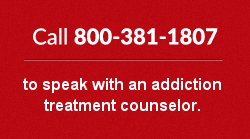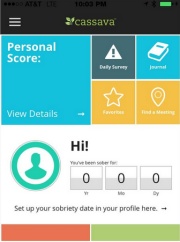 An important consideration in examining the disease of addiction is the recognition that “recovery” is an incremental process. Many people facing their addiction will experience brief setbacks, and some will struggle for years before they are able to remain on the path of positive change.
An important consideration in examining the disease of addiction is the recognition that “recovery” is an incremental process. Many people facing their addiction will experience brief setbacks, and some will struggle for years before they are able to remain on the path of positive change.
As a counselor, I have listened to many recovering individuals talk about their resistance to change. Addiction is a persistent disease of disruptive thinking and behavior highly subject to repetition. Addicts will repeat the same bad “choices” as a result of many factors. Scientific research has shown that habitual patterns of behavior are neurochemically driven deep within the brain. These patterns can be reinforced by one’s social connections, immediate environment, and underlying belief system.
With severe levels of addiction sustained over years, it can become difficult for people to shift their lifestyle, thinking, and decision-making toward a healthy, recovery-oriented mindset. In 12 Step recovery, there is the popular expression called “hitting bottom”. This expression is typically used to describe a specific time in which a person has lost so much, or suffered such a painful crisis, that their readiness for change finally emerges. This window of opportunity is often times short-lived. Hitting bottom will compel some people to finally take the right action – to seek help – to admit they have a problem. If this happens, then a decision to step onto the path of recovery may actually occur.
Active addition is often characterized by a short range view in which consequences are not thoroughly considered. Focusing on consequences interferes with the compulsive desire to use. And even then, a recognition of consequences to oneself and family is often not enough to change the decision to get high. With opiate addiction, the decision to use is overwhelmingly controlled by opiate withdrawal sickness. This never-ending physical sickness takes people away from recovery and keeps them trapped in a desperate existence centered around doing whatever is necessary to avoid being “dope sick”.
Fortunately, this dilemma can be addressed through medication-assisted treatments (methadone, suboxone, naltrexone). These do not replace the need for a recovery program, but they become an important part of one’s overall personal recovery program. Staying on the path of recovery is the next critical phase after stepping onto the path. Medication-assisted treatment greatly aids recovering addicts in staying on the proper path. Science has proven that those with the greatest chance of long-term, successful sobriety are those that remain in treatment and recovery. Said differently, a person’s chance of recovery success is statistically improved the longer they remain in treatment.
When a person no longer has to face the crippling weight of daily withdrawal sickness, they have a chance to re-approach their overall recovery and the opportunities that lie ahead of them.
 Palm Partners is a drug rehabilitation and recovery program located in Delray Beach, Florida. The organization provides a 24 hour hotline for individuals interested in learning about addiction treatment options.
Palm Partners is a drug rehabilitation and recovery program located in Delray Beach, Florida. The organization provides a 24 hour hotline for individuals interested in learning about addiction treatment options. 
 Follow
Follow

 A new mobile phone app for recovering people was released last month by Elements Behavioral Health based out of Long Beach, California. The app is called
A new mobile phone app for recovering people was released last month by Elements Behavioral Health based out of Long Beach, California. The app is called  An important consideration in examining the disease of addiction is the recognition that “recovery” is an incremental process. Many people facing their addiction will experience brief setbacks, and some will struggle for years before they are able to remain on the path of positive change.
An important consideration in examining the disease of addiction is the recognition that “recovery” is an incremental process. Many people facing their addiction will experience brief setbacks, and some will struggle for years before they are able to remain on the path of positive change.
 Tennessee is a leading state in the incidence of opioid addiction and opioid overdose. This is most likely a direct result of Tennessee being ranked one of the country’s leading states for the prescription of opioids as well as benzodiazepines like xanax and klonopin.
Tennessee is a leading state in the incidence of opioid addiction and opioid overdose. This is most likely a direct result of Tennessee being ranked one of the country’s leading states for the prescription of opioids as well as benzodiazepines like xanax and klonopin.


